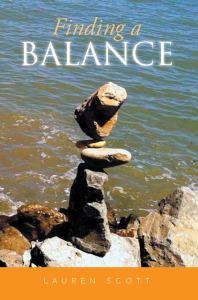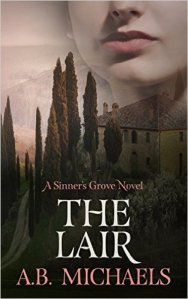I’m sharing a wonderful and informative post by my good friend, Louise, from her blog, A.B. Michaels and am honored to have been included in this comparison between novelists and poets. She is the amazing author of a romantic series, Sinner’s Grove, The Art of Love, and The Lair, which are all available on Amazon. I encourage you to take the time to visit her site, http://abmichaels.com.
http://www.amazon.com/dp/B00NE18GYY
http://www.amazon.com/Lair-Sinners-Grove-Novel-ebook/dp/B00YYJT2G6/
A very good friend from my years in northern California is the poet Lauren Scott. (lscotthoughts.com). We are both writers, but while she writes pieces with minimal words, I write full-length novels. Not much overlap, right? Wrong. The truth is, long-form writers and poets have quite a bit in common:
We both love words. I mean love them. I know that even though she may write a first draft intuitively, Lauren considers every single word that goes into every single poem she writes. Is it conveying the emotion I want it to? Is it describing the scene I’ve created as well as it could? Does it sound right next to the other words I’ve chosen?
As a novelist, I do the same thing, except that I have a bit more latitude, because my readers are kind enough to give me ample space to set my scene, introduce my characters, tell my story, and so forth. But sometimes, having all that leeway causes “bloviating,” as one television commentator calls it. I simply write too much and have to get rid of the excess. Sometimes that’s painful. Sometimes, for the sake of the story, I have to say goodbye to a bit of writing I love very much. My guess is, sometimes Lauren has to say the same goodbyes. With such a short form within which to share her vision, she can’t afford to have even one word that doesn’t work for her.

Our words must tell a story. Novelists like me have hundreds of pages in which to tell their story; poets like Lauren measure the length of their work in lines, not pages. Yet we must both serve the same master: the story.
I so admire the discipline that Lauren and other poets use to shape their work, that I thought I’d share a writing exercise that fiction writers sometimes use to fine tune their editing chops. The general term for it is “flash fiction” and those of you who like poetry might also follow flash fiction writers.
I subscribe to a writing blog written by Morgen E. Bailey (she’s a writer in the U.K.) https://morgenbailey.wordpress.com/flash-fiction-fridays/ and she regularly publishes examples of very short fiction (less than 500 words) and better yet, six-word stories. That’s right. Six words. Even Lauren’s poetry has more than six words!
The key to this exercise is that your six words must tell a story.
“She had a new blue cell.” Is there a story there? Meh.
“The cell beeped and she screamed.” A story? Possibly. As readers, we wonder, why did she scream? Who was calling her that she should have such an extreme reaction? Is she in danger now? Yeah, but maybe she just wasn’t used to the sound and that’s all it was. Not much of a story after all.
“The cell’s silence lacerated her heart.” Not great, but best of the bunch, I think. We imagine something intense is going on with the woman; she’s experiencing a profound sadness because someone on the other end of that cell isn’t calling. There’s a story there. Both Lauren and I look for the story and try to tell it the best way we can.
We seek an emotional response. Okay, so the beeping cell that caused the woman to scream? Maybe it’s a story, maybe not. Let’s say it is. Are we emotionally invested? We might surmise the woman’s in danger, but do we really care enough about her at this point? I don’t (but maybe I’m cold and heartless!). In example three, however, the reader has a sharper sense of what’s going on. We don’t know the details, but we wonder. And we empathize. In short, we connect. Lauren strives for that response from the reader and so do I.
We strive to capture the imagination through imagery. In long form, this is a matter of style. Some writers take great pride in their descriptive ability; they love to use metaphor and simile to describe character, setting or emotion. Others feel their work is best served by keeping such word play to a minimum. I’m somewhere in the middle. Too much of “The willows undulated like dancers in a riverfront’s far flung chorus line” takes me away from the story; too little leaves me feeling like I’ve just eaten unbuttered toast. I strive to keep the right balance in my writing.
For poets like Lauren, however, capturing the reader’s attention through vivid imagery is their stock in trade. Since they work with so few words, they have to make virtually every word do some heavy lifting. Here’s an example from Lauren’s poem, “Pillow”:
It’s not the best night
for a mutual agreement
instead my stomach
entertains a live
basketball game
where thoughts dribble
and strategy is weak
You ask about the score?
It’s looking like a blowout,
not in my favor
©2015 Lauren Scott
I can perfectly picture what Lauren’s protagonist is going through, thanks to her basketball game metaphor. I too look for ways to bring the idea I want to get across through vivid images.
We want our readers to take something away from the experience. Let’s face it – most writers, even if their main goal is to entertain, consider it a bonus if their readers walk away with something – a thought, a feeling, a new way of looking at some aspect of life, a nugget they might remember and mull over after they’ve read the last line or the last page. Consciously or not, we interject theme into our work, that underlying takeaway. It’s our way of saying, “Hey, this is what I think or feel or wonder about this subject, and I’d like to share it with you.” Poets and writers of any form have this trait in common. It’s what keeps us tapping away.
Are you a poetry lover? Have you ever used that form to express yourself? What other similarities do you see with longer forms of writing? I’d love to hear from you.
P.S. Lauren’s books of poetry are available on Amazon, Barnes and Nobel, and Xlibris (links are below)
http://www.amazon.com/s/ref=nb_sb_noss?url=search-alias%3Daps&field-keywords=Finding+a+Balance+Lauren+Scott
http://www.barnesandnoble.com/w/new-day-new-dreams-lauren-scott/1117050670?ean=9781483685687
http://bookstore.xlibris.com/Products/SKU-0140289049/New-Day-New-Dreams.aspx


What a fascinating post Lauren. Very interesting; two different disciplines but the same mechanics, so to speak.
I so admire people who have a novel writing mind; I just don’t! But I think even flash fiction is very difficult too; we have done a little in the writing class but I’m way out of my comfort zone.
Have you heard/read the famous six word story that goes “Baby shoes for sale; worn once”. Very poignant and powerful.
And congratulations on being featured on this blog! ❤️ Xx
Thanks, Chris! I thought Louise did a great job of comparing and I was honored to have been featured. Writing a novel has been a dream of mine, too, but like you, I don’t think it’s in me! 🙂 Yes, I love that six word story; very moving and powerful. Have a wonderful weekend! xo
How interesting!
I thought so, too, Ian, and I feel Louise did a great job and I was happy she chose me to use in this comparison between novelists and poets. Thanks for reading!
Wonderful post, Lauren. Congrats on appearing in this blog post. Hugs, my friend.
Thanks so much, Michelle! I was honored and appreciate your support, too. Hugs back and have a wonderful weekend. By the way, I am so far behind in reading blogs but will visit you soon as you’re one of my faves. 🙂
Thanks, Lauren. No problem, I totally understand.
Thank you for the mention (and subscribing!), Lauren. Coincidentally(?) the latest monthly batch of six-worders went up today. https://morgenbailey.wordpress.com/2015/07/31/flash-fiction-friday-166-6-word-stories. I’ve also added your blog to my blog’s https://morgenbailey.wordpress.com/links/other-writing-related-wordpress-blogs page. 🙂
You’re welcome, Morgen, and Louise is also following you. Thanks for the link, too! I’ll check it out! Take care! 🙂
In all your writing, you should strive to be as concise as possible, whatever the medium. Comic strips are a similar, stripped down minimalist type of writing.
I totally agree with you, Binky, and I can see how similar comic strips are to this comparison, as well. Have a great weekend with lots of chocolate!
Similar mechanics but the poet like the cartoonist has to deliver the meaning in a very short quick burst.
Exactly! I agree and I feel that Louise did a wonderful job in explaining the similarities and differences…thanks for reading, C!
First this is a wonderful tribute to Lauren. Her writing is very vivid. You are so right about having to cut away words in poetry and in short stories and novels. Words that we are fond of and want to share but have to be trimmed. I have a file of lines and scenes that I hope to one day be able to share.
Yes doing flash fiction does teach us how to do this. I use to participate in the Friday Fictioneer’s which is a 100 word. I would work my stories until I was at exactly 100 words. I felt that took skills. I use those same skills when editing my first novel. (yet to be published)
Thanks so much, Kim, for your kind words about my writing and I’m glad you enjoyed Louise’s post and comparison. You’re the fiction writer so I’m sure this hit home. I’ve tried fiction but I’m not sure it’s in me yet I loved how Louise explained the differences and similarities of both…I’m getting better at deleting the fluff words but it remains a work in progress. Even a few days after publishing a poem here I might read it again and see something that needs changing. It seems like editing never ends. 🙂